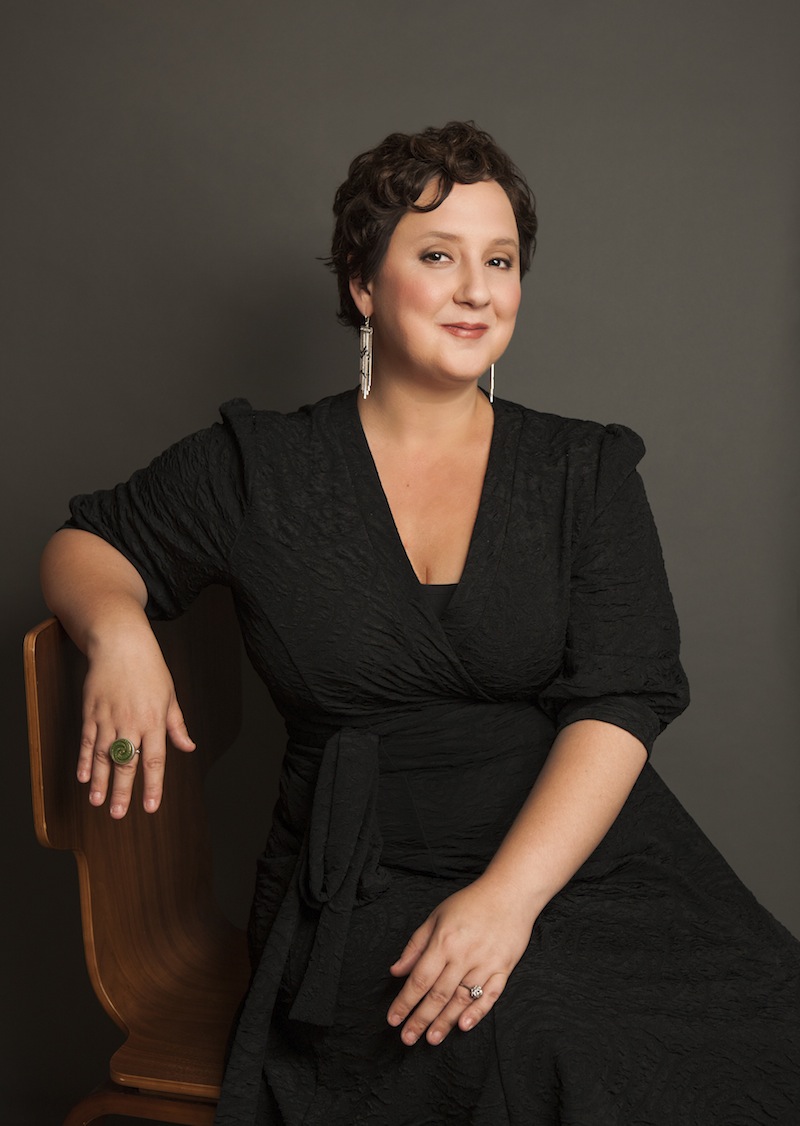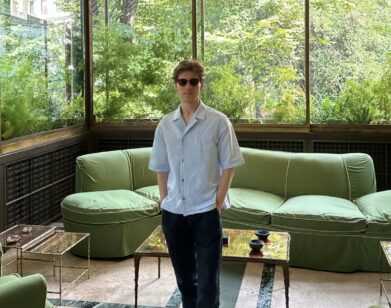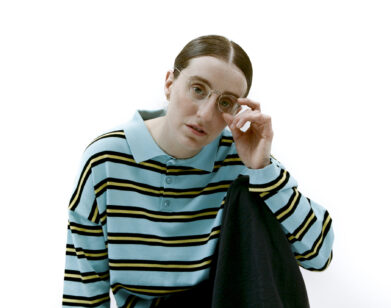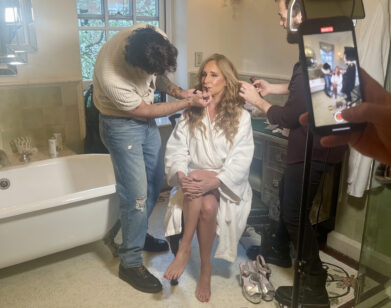Julia Fierro Cuts Deep

ABOVE: JULIA FIERRO. PHOTO COURTESY OF NATALIE BRASINGTON
Parenting is full of pleasures, as well as pitfalls. In Julia Fierro’s debut novel Cutting Teeth (St. Martins), the author intricately weaves the lives of couples as they convene at a Long Island beach house. But what is supposed to be an idyllic escape with their children and each other turns into a cruel measuring-up—of kids, careers, loves, and private dreams. Slowly, the faces these young friends and parents show each other and their children crumble.
Darkly funny, spicy, intimate, and intense, Fierro’s novel perfectly captures the line between parenthood and self—plus, how we detrimentally judge ourselves and others, and how liberating it can be when we let judgment go. Fierro is familiar with family, having snuck away from her own to chat with us on a Brooklyn stoop. We spoke about her own strange childhood, American dreams, façades, and being a mother in the trenches of youth.
ROYAL YOUNG: You write intimately of childhoods. How was your own?
JULIA FIERRO: I grew up around a lot of WASPs on Long Island. The mothers wore tennis whites and everyone had boats. There were dancing classes you could be part of, but only if you had lived in the town for a certain amount of years. My mother, a kind of overweight smartass who had grown up in Queens and my father, an Italian immigrant whose English wasn’t that great, moved us to this town. It was so strange. [laughs]
YOUNG: [laughs] Tell me more.
FIERRO: Well, I learned a lot about wealth and the American Dream and my father’s hunger. I wrote about mothers who are kind of privileged. Which in some ways I am, but I’m also not.
YOUNG: These ideas of class, money, and coveting what other people have is something I want to talk to you about. I think we do it so often.
FIERRO: Part of it goes back to I’ve always been really fascinated with the American dream because my father really came to America in pursuit of that dream.
YOUNG: What did that dream look like to him?
FIERRO: It’s a little bit complicated. My father met my mother at a Catholic dance. The archdiocese used to have these massive dances where like 300 young people would come. The women wore white gloves. My father did not speak any English. My mom did not speak any Italian, she was virginal, had never had a boyfriend. She fell in love with him, and they just made it work. She went back to Italy and lived with him for many years secretly.
They came back to America when I was two years old, and my father had all these really big expectations about what life would be like. It’s a quest that never ends. Lifestyles of the Rich and Famous was his favorite TV show.
YOUNG: But just because you have money doesn’t mean this frustration or desperation or hunger subsides. Often it’s magnified by wealth.
FIERRO: And that dream is impossible to attain now. Tiffany for me was the American Dream character in that she recreates herself. The difference between my life and my father’s life is so mind-boggling, but he wanted me to grow up believing I could do anything. My father didn’t want to tell stories about how he had to eat rats or snakes as a child. My parents brought us to an incredibly sheltered community to grow up.
YOUNG: You do a lot of looking behind the façade. With family and having kids sometimes it’s necessary to put on a face.
FIERRO: Yes, especially with mothers. My husband is in some ways a more natural mother than I am. He’s so giving. He likes to play with them. I like to read books to them. It feels like a privilege to get to work. We’re just starting to see this discussion of women, especially mothers and family versus ambition and work for the first time in mainstream media. It’s very black and white. Either you lean in like Sheryl Sandberg and dive into your ambition. Or you’re a stay-at-home mom, making their own yogurt and soap. Or corporate moms who don’t get to see their kids that much. Women should let themselves figure out what sort of mothers they need to be and not always look to definitions.
YOUNG: Absolutely. I think anyone who is looking at the current cultural categories and trying to decide which one they fit into will also judge others and be insecure about themselves. I’d love to talk with you about art or ambition versus family.
FIERRO: [laughs] I’m worried about getting in trouble. It’s hard to be an incredible mother, writer, and business owner. But I grew up in a house where my father did all the cooking, most of the cleaning, he loves Martha Stewart Magazine. He’s very domestic, but yet he’s not the person we went to when we needed unconditional support.
I feel so grateful to be a woman and mother now in this time. My grandmother had to give herself an abortion in a one-room house during the war, crazy stuff. But I still think even privileged women carry around this mechanism that is part of the historical structure of being secondary. It’s hard for us to feel that we’re worthy. For me it’s about that specific time in life when you have very young children. I felt guilty if I took any time to myself. My mother always said, “The children come first.” But it felt like they were coming first by me smoothing out problems at work or writing. I had already texted the babysitter two times to make sure the kids had had a good day at school.
YOUNG: And that relationship will change dramatically, too; I mean, they’ll be crazy teenagers and then college and all that.
FIERRO: That’s why I had to write about that really specific intense, in-the-moment early years. It’s so completely unlike any other experience or phase of life. Now, looking back, I’m like, “God, that was weird.” When I read excerpts of the book out loud I’m like, “I hope this doesn’t act as birth control.” Though maybe that’s a good thing, a lot of young men who have read it ask me scared if that’s what early childhood is really going to be like. “No,” I tell them, “It’s hyperreal.”
JULIA FIERRO’S CUTTING TEETH IS OUT NOW.






